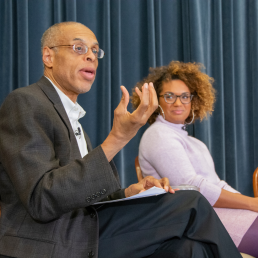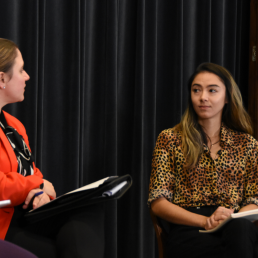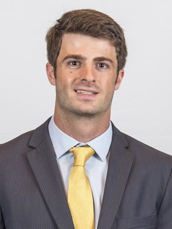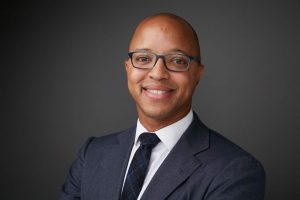Blog Post IP Attorney Interviews
Interviews with Attorneys of Color in IP
In 2020, spring and summer protests of racial injustice and mistreatment by police increased momentum to a movement to support diversity and inclusion in a variety of spaces, including in the legal field. Our work at the Institute has always included efforts to increase the diversity of the intellectual property legal bar. In 2003 the Institute established its annual IP and Social Justice CLE program, in part to provide opportunities for IP attorneys of color to present their expertise before IP experts in in-house corporate and governmental legal departments, elite law firms, and other IP entities. For the past seventeen years, this program has also enabled minority IP attorneys to serve as role models for dozens of law students and to encourage them to pursue careers in IP practice.
We believe the lack of diversity in the IP legal bar must be addressed in a variety of ways. We previously shared the Bloomberg Law article, Black IP Lawyers Who’ve Made It Look to Grow Ranks Beyond 1.7%. Now we build on that conversation starter with interviews with successful IP attorneys of color to hear their honest perspective:
- Esther Lim
- Mariessa Terrell
- Daryl Lim
- Jennifer Hayes
- Lita Rosario-Richardson
- Philip G. Hampton
- Idris N. McKelvey
Esther Lim
This month we feature an interview with Esther Lim.
Watch the full interview here.

Esther H. Lim is Partner & Chief Diversity and Inclusion Officer at Finnegan, Henderson, Farabow, Garrett & Dunner, LLP, and Patent Chair of the IIPSJ IP and Social Justice CLE program. Watch as she provides valuable insight into her personal journey to a career in patent litigation, portfolio management, licensing, and counseling, and the importance of diversity in intellectual property practice.

The interview was conducted by Ariel Batiste, a 2023 graduate of Howard University School of Law, and current associate at Finnegan.
Mariessa Terrell
This month we feature an interview with Mariessa Terrell.
Watch the full interview here.

With evolving definitions on what intellectual property includes and rapidly emerging technology, trademark and fashion attorney Mariessa Terrell discusses the unconventional career pathways taken that launched her to the forefront of a landscape shift in intellectual property law.
From her beginnings as a student at Howard University School of Law, Mariessa found a way to incorporate her love of fashion into her journey. Landing at the United States Patent and Trademark Office(USPTO) in the department responsible for beauty fashion matters was just the beginning. Since then, she has gone on to develop specialized practice areas at her law firm, served as D.C. Fashion Commissioner, and assumed the role of Adjunct Professor & Supervising Attorney of the Howard University School of Law Intellectual Property Law Clinic. She details that staying focused on what she wanted helped navigate her through her unique route to success.
After an extended hiatus, Mariessa made her way back to the USPTO office where she is the Attorney Advisor to the Trademarks Customer Outreach section where she develops the USPTO educational programs for experienced trademark practitioners. She also is Executive Director of the High Tea Society, a mentoring program for girls in Washington, D.C., and a creative writer with several published short stories featuring her alter ego, Simone Butterfly.
Contact Mariessa:
Web: MariessaTerrell.com
Social Media: @MariessaTerrellEsq
Email: M@MariessaTerrell.com
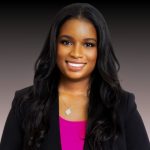
This interview was conducted by Leeandria Williams, a law student at Thurgood Marshall School of Law.
Daryl Lim
This month we feature an interview with Professor Daryl Lim.
Watch the full interview here.

Professor Daryl Lim is a very busy man. He is the H. Laddie Montague Jr. Chair at Penn State Dickinson Law, associate dean for Research and Innovation, and the founding director of Dickinson’s IP and Innovative Initiative. Incredibly, Professor Lim is also a co-hire in Penn State’s Department of Computational and Data Sciences, and an affiliate at Penn State’s Center for Socially Responsible Artificial Intelligence.
Truly IP’s international man of mystery, Professor Lim is an alumnus of the University of Singapore, the University of London (London School of Economics), and Stanford University. In addition to his professorial duties, he serves as a peer reviewer for several leading law journals as he is himself an award-winning author on the intersection of IP, technology, competition policy, and the public good.
During the interview, Professor Lim tackles the hard-hitting questions, including whether the practice of law as we know it will survive the current influx of generative AI chatbot programs, like “ChatGPT.” Thankfully, Professor Lim assures us that future lawyers who possess distinctly human characteristics–such as empathy, creativity, and a passion for social justice–will always be able to add value.

This interview was conducted by Liana Alston, a third-year law student at Howard University School of Law.
Jennifer Hayes
This month we feature an interview with Jennifer Hayes.
Watch the full interview here.
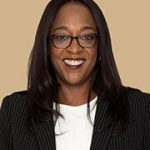
In this interview Jennifer Hayes, head of Jordan IP Law’s Pharmaceutical, Biotechnological, Life Sciences, and Chemical and Materials Practice groups gives her perspective on diversity in the legal profession and the importance of mentorship. Early in her career, Jennifer followed in her father’s footsteps and became a registered pharmacist in the state of Maryland. Later, her mother encouraged her to seek out a career in patent law.
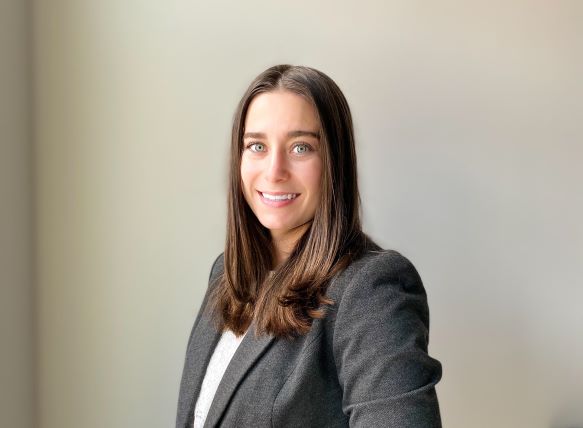
This interview was conducted by Erin Williamson, a third year law student at The George Washington University Law School. in the interview, Jennifer stresses the importance of “not taking no for an answer” and diligently pursuing opportunities to grow in one’s practice. In the interview, Jennifer talks about her experiences building Jordan IP’s chemical practice from the ground up and the challenge of bringing in new clients. Throughout the interview is one consistent theme: understand your strengths and never stop seeking opportunities to improve yourself.
Lita Rosario-Richardson
This month we feature an interview with Lita Rosario-Richardson.
Watch the full interview here.

Lita Rosario-Richardson runs WYZ Girl Entertainment Consulting, where she provides legal advice and advocacy for creators relating to intellectual property and entertainment issues. Early in her career, Mrs. Rosario-Richardson founded and was the VP of Business and Legal Affairs for University Music Group which produced multi-platinum artists Dru Hill, Sisqo, and MYA. She has represented numerous artists, including George Clinton, Missy Elliot, members of Parliament Funkadelic, Afrika Bambaataa, and Soul Sonic Force to name just a few. She is also an adjunct professor at the University of the District of Columbia’s Department of Mass Media, Visual, and Performing Arts and American University’s Kogod School of Business.
Philip G. Hampton
This month we feature an interview with Philip G. Hampton.
Watch the full interview here.
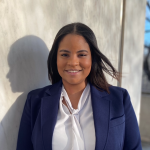
The interview was conducted by Elizabeth Rice, a third year law student at Howard University School of Law. In this interview, Chief Diversity & Inclusion Officer, Senior Partner and former Commissioner for Trademarks Phillip Hampton provides his perspective on diversity, the importance of mentorship, and success within the legal profession. Outside of his aforementioned experience, he is also an adjunct professor at Howard University School of Law and was recently awarded the 2021 Mark T. Banner Award, among many other recognitions and accomplishments.

Throughout the interview Hampton emphasizes the need to increase the presence of women and minorities in the legal profession, especially in the areas of patent and copyright law. He makes mentions of his own efforts in his former position as Commissioner for Trademarks to do just that. He attributes his personal success to his persistence and sometimes, admittedly, his stubbornness. In the interview, Hampton talks about his experiences early on in his career and how those challenges encouraged him to persist and work harder. While a broad range of topics and anecdotes are covered, a consistent theme is Hampton’s dedication and commitment to helping others achieve success in the legal profession.
Idris N. McKelvey
In December 2020, we featured an interview of Idris N. McKelvey.
Idris McKelvey leads the Estée Lauder Companies’ Patent Group, where he is responsible for designing and executing the company’s global patent strategy, supporting more than 30 luxury cosmetics brands. Idris was promoted to Vice President, and Lead Patent Counsel, in July of 2018.
Prior to Estée Lauder, Idris served as patent counsel for Procter and Gamble, managing global patent portfolios for brands including Pantene®, Head and Shoulders®, Herbal Essences®, Cascade®, and Dawn®.
Idris earned his J.D. from Howard University School of Law in 2005, and his B.S. in chemistry from Howard University in 2002 (cum laude). Away from work, Idris volunteers with the Long Island chapter of Girls Inc. and Jack and Jill of America. Idris resides in Huntington, NY with his wife, Monique, and two daughters, Nadia and Zara.
The interview was conducted by LaTessa Gray*, a third year law student at Howard University School of Law. In the interview, Mr. McKelvey discusses his career as a patent attorney, provides advice for future IP attorneys, and discusses the diversity, or lack of diversity, of the IP bar.
Here’s a description of the interview in Tessa’s own words.
Vice President, Lead Patent Counsel of Estee Lauder, and full-time “girl dad” Idris McKelvey is nothing short of inspiring. In this interview, McKelvey gives his perspectives on the lack of diversity in the legal profession, how to distinguish yourself amongst legal talent, and the importance of accepting and seeking honest critique in career development. He also negotiates a frozen yogurt date with one of his daughters.
McKelvey details an insightful approach to his philosophy of success which includes falling into opportunities, self-accountability and awareness, and fostering intellectual curiosity. But this is not all talk. His commitment to the skills he believes were useful in his journey is evidenced by his own hobbies and interests: listening to a variety of music, travelling the world with his wife and daughters [which has been on a halt with the virus], and reading books that push him to think and approach the world differently. Many years removed from his days as a chemistry major at Howard University, McKelvey still makes an effort to learn from the world around him and to use those teachings as a tool to differentiate himself within the legal field.
Blog Post On IP Empowerment for All
IP Empowerment for All
– Howard University School of Law’s Intellectual Property Student Association
THE PROBLEM
“In a system where billions of dollars are generated in part due to the athletic success of student-athletes, the restrictions on non-game related NIL deals do not prevent exploitation— they are exploitative.” – Professor Gabe Feldman, Tulane Law School; Director, Tulane Sports Law Program; Associate Provost for NCAA Compliance
***
While O’Bannon’s decision and the subsequent law changes in California and Florida is great progress around name, image, and likeness (“NIL”) as it pertains to the NCAA and student athletes, it has also created some other issues.
Uniformity is one of those issues. With the absence of federal legislation covering NIL standards for college athletes, California’s Fair Pay to Play Act has in essence created a “venue shopping” system where student athletes can choose a school to attend simply because it’s located in a state with more favorable NIL laws. In addition, large amounts of conflicting legislation can lead to mass confusion.
The other issue is that, in other states, students are dealing with the traditional harms of student athletes in the market for non-game NIL payments:
- Student athletes—just as other students—have property rights in their name, image and likeness. Many student athletes have created tremendous value in their NILs and, absent NCAA restrictions, would receive significant compensation for them in an open market. These men and women—often from socio-economically disadvantaged families—are deprived of the economic benefit the market would pay for their property.
- Some student athletes will actually have the most value to their NIL while they are in school. For example, some athletes are injured prior to professional drafts. Therefore, the NCAA’s policy prevents those athletes from properly capitalizing off of their image when it is most beneficial for them to do so.
- But most importantly, the stripping of an innate, legal right in consideration for the ability to play a sport (without any education about its existence) leaves the athletes less inclined to know how to properly use and commercialize their IP in the future.
THE MISCONCEPTION
One of the most common complaints against “Fair Pay to Play” is the argument that athletes do not deserve to be paid for playing a sport. This usually comes from people with little understanding of NIL or the NCAA’s policy, and rests solely on the literal meaning of the phrase.
But it’s important not to confuse third-party NIL compensation with other types of compensation. Most importantly, the NCAA is not contemplating changes that would allow colleges to pay college athletes. The Board of Governors remains fiercely opposed to “pay for play” and other forms of university-to-athlete compensation outside of the grant-in-aid (tuition, fees, room and board, required course-related books etc.). Third-party compensation for NIL is also not compensation for the underlying labor of playing a sport. No college will be allowed to pay their athletes for their NIL or their labor. The legislation would merely allow for student athletes to have the same NIL rights as every other student-creator.
THE SOLUTION
Howard University School of Law’s Intellectual Property Student Association (“IPSA”) has held a long-standing devotion to the application of social justice in the area of IP. It naturally follows that we would like to support a federal bill that would give college athletes the opportunity to profit off of their image and likeness that they have worked hard to curate.
Currently IPSA and our IP Empowerment For All subcommittee is in the process of updating research on current legislative proposals regarding NIL. This research will be imputed into a one-pager that more thoroughly addresses the need for particular federal legislation in this area. Then, we can utilize the paper as a tool to persuade our peers and colleagues to sign a petition in support of the proposal. While the NCAA’s proposal to Congress is effective in addressing uniformity, the language of the proposal is still very restrictive for student athletes.
As a result, we are working diligently to ensure that the proposed bill we choose to endorse and share addresses concerns across our communities and reflects our mission of social justice.
We are confident that armed with the correct information, many people will see that this proposal is long overdue. Please continue to check this space for our selected proposal and link to our petition!
Blog Post On Diversity and Innovation
Blog Post on the Importance of Diversity and Innovation
by Tashia Bunch, IIPSJ Administrative Director
The 2018 SUCCESS Act required the US Patent and Trademark Office (USPTO) to work with the Small Business Administration (SBA) to determine the number of patents owned by women, minorities, and veterans and to provide recommendations to increase that number. A report was provided in 2019 that included steps the USPTO plans to take as well as legislative recommendations. One such step by the USPTO was the launch of the National Council for Expanding American Innovation (NCEAI) initiative last month. The initiative includes representatives from private companies, academia, and government to help the agency develop a comprehensive national strategy to build a more diverse and inclusive innovation ecosystem.
As we explore ways to build this ecosystem, we must acknowledge why this is important to the country as a whole and specifically in minority communities, identify current barriers to equal access and opportunities, and provide solutions for breaking down those barriers.
We know that increasing innovation is valuable to society as a whole. This idea appears in the U.S. Constitution when it grants Congress the power to issue patents and copyrights in order to promote the progress of science and useful arts. Today, the United States promotes itself as a global leader and continuing contributions in science, technology, engineering, arts, and math (STEAM) fields are necessary to remain in that position. Moreover, creativity and innovation often lead to new business ventures and avenues for income contributing to the national economy and job creation.
Increasing IP creation and ownership in minority communities will contribute to these societal goals. It is also important to address economic justice principles of equitable access to financial opportunities. Creativity and innovation can lead to financial freedom through IP ownership and entrepreneurship. Access to education in STEAM fields beginning as early as elementary school as well as resources and community programs providing access information and assistance in protection and monetization can help expand IP creation and ownership in minority communities. As such, we strongly advocate for policies and programs providing education and access to the tools and information necessary to innovate and to monetize their innovations.
IIPSJ encourages a continuing dialogue on this important topic both on the impact and value of diversity in innovation and creativity and on ways to increase diversity in STEAM fields. Earlier this year at our annual CLE program, we featured a panel presentation titled “Remembering Invention of a Slave: Patents and the Continuing Struggle for Civil Rights”, which discussed inventorship and the struggle to acquire patents in the African American community from slavery to the present. You can view this discussion on our YouTube channel.
We have also shared a variety of materials discussing the topic in our monthly newsletter. Materials such as the NPR podcast and post detailing how conditions during the periods of post-Reconstruction and Jim Crow obliterated the legal incentives for black inventors to apply for patents and otherwise undertake innovative endeavors. Along with the story of Percy Julian, a chemist who managed to innovate and acquire over 130 patents during Jim Crow. Additional links below.
IIPSJ will continue to engage in continuing conversations on this topic, advocating for policy changes to serve minority communities and looking for other ways to help further the conversation and make change.
Links:
– USPTO launched the Expanding Innovation Hub, an online platform available on the USPTO website that provides resources for inventors and practitioners to encourage greater participation in the patent system
– Invention of a Slave and the Ongoing Movement For Equal Justice, by Dennis Crouch
– Motion Picture Association panel “Understanding Copyright’s Role in Diverse Storytelling”
– Copyright Alliance – Educational content addressing race and racism
Blog Post On Trademarks and Black Lives Matter
Trademarks and Black Lives Matter
Black Lives Matter. I Can’t Breathe. Say Her Name. George Floyd. Trayvon Martin. Breonna Taylor. Unfortunately, the list of phrases and names goes on. With each police involved killing, a new hashtag is born. And after awhile we see it everywhere. Used in connection with social media posts, on protest signs and t-shirts, and in connection with requests for donations to support change.
Whenever a death occurs, there is usually a slight influx of trademark applications submitted to the USPTO. For example, there are 30 applications that have been filed with the phrase Black Lives Matter, 13 applications with the phrase I Can’t Breathe, and 3 that include the name Trayvon Martin. Applications are filed by a variety of sources, including individuals, newly created foundations, the deceased’s estate, or other organizations.
Many of the applications have been abandoned after receiving one of two refusals for registration. The first refusal these applications may receive is because they suggest a false connection with someone or their estate, and that individual is not connected to the trademark application. For example, one application for the mark I Can’t Breathe was refused registration for a false connection with the estate of Eric Garner. Those that can show connection to the individual or institution can overcome this refusal.
Another refusal these applications receive are because they are such a commonly used phrase that consumers will not recognize it as a trademark. In other words, the term or phrase is used by so many that the public would not believe it is supposed to indicate one particular source. Instead they would read the phrase as simply indicating support of the message or movement. This refusal can be overcome by submitting evidence that the public will view the mark to indicate a single source.
If you see a trademark application in the USPTO records and have evidence that it is owned by a group other than those actually connected with the movement or individual, you can contact the USPTO through a letter of protest. More information on submitting letters of protest can be found on the USPTO website at https://www.uspto.gov/trademark/trademark-updates-and-announcements/letter-protest-practice-tip .
Although many are unable to register these names and phrases with the USPTO, they may still use them in connection with their products and services. Not all that are using the names and phrases are part of the movement. Check out this NPR story about the Black Lives Matter foundation which has collected millions of dollars during the recent protests, but has no connection the well-known Black Lives Matter Global Network foundation: https://www.npr.org/2020/06/16/878852994/a-company-that-profits-off-of-the-black-lives-matter-movement.
As we choose groups to support through sharing information, purchasing products, or donating money to an organization, we should be sure to check the source that we are supporting. Website and social media “about” pages or sections should give additional details about the organization to confirm whether it’s the group you actually want to support.
Blog Post On Likeness Legislation
Recent Name/Image/Likeness Legislation Will Change the NCAA (or Not)
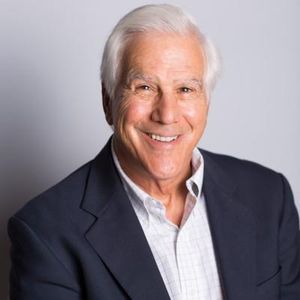 by Ronald S. Katz
by Ronald S. Katz
INTRODUCTION
In a list of organizations creating inequities, the National Collegiate Athletic Association would certainly be included. For example, like professional sports, the NCAA is a multi-billion-dollar enterprise, but, unlike professional sports, it pays only a minuscule percentage of its revenues to its athletes, mainly in the form of athletic scholarships. In the field of intellectual property, those players have not been allowed to receive payments for their names, images and likenesses, even though every other student on campus has that right.
To remedy this latter injustice, California in September 2019 passed the Fair Pay to Play Act, allowing athletes rights regarding their names, images and likenesses similar to those enjoyed by all other students. Numerous other states are considering NIL legislation similar to California’s.
Because college sports receive much public attention, the California law, which does not come into effect until 2023, has generated numerous opinions about its potential effect. The extremes of those opinions range from those who say that the law will end intercollegiate sport as we know it to those who say that the law will have no effect. The NCAA has now also weighed in, stating, opaquely, that it will at some unknown point “permit” college athletes “the opportunity to benefit” from their name/image/likeness “in a manner consistent with the collegiate model.”
In fact, at this juncture, no one can really say what the effect, if any, of the law will be. That point was driven home by an order rendered on January 6, 2020, by the federal appellate court with jurisdiction over California, the Ninth Circuit Court of Appeals. Pursuant to that order, in the pending appeal (No. 19-15566) of In re: National Collegiate Athletic Association Athletic Grant-in-Aid Cap Antitrust Litigation, a case concerning the payment of college athletes, “The parties are directed to file…briefs…on the impact, if any, of California’s Fair Pay to Play Act…on this case.”
If the judges of the Ninth Circuit do not yet know the effect of the NIL law, it is fair to say that no one else does either. In my opinion, the best that can be done at this point, as below, is to put the law into context by triangulating among the extreme opinions noted above and the NCAA’s position on the Fair Pay to Play Act.
EXTREME OPINION #1: NIL LEGISLATION WILL END INTERCOLLEGIATE SPORT AS WE KNOW IT
There is logic supporting this view. For example, there is no difference in economic effect if an athlete receives from an alumni booster of a university $10,000 under the table, which violates NCAA rules; $10,000 in salary, which violates NCAA rules; or $10,000 for name, image or likeness, which would be legal under the Fair Pay to Play Act and, possibly, under new NCAA regulations. Because money is fungible, it really does not matter, in an economic sense, for what reason it is purportedly paid. Therefore, payment for names, images and/or likenesses can completely undermine the NCAA principle that athletes should not be paid. The amounts paid, in theory, could be virtually unlimited.
EXTREME OPINION #2: NIL LEGISLATION WILL HAVE NO EFFECT
This extreme view has support in the law. Under the Commerce Clause of the U.S. Constitution, states cannot make laws that regulate interstate commerce, and intercollegiate sports clearly constitute interstate commerce, viz., the NATIONAL Collegiate Athletic Association. Indeed, a case decided by the Ninth Circuit Court of Appeals in 1993 (NCAA v. Miller, 10 F.3d 633) applied this principle to intercollegiate sports.
In that case, Nevada made a law that would have caused NCAA disciplinary proceedings to have rules in Nevada different from those that the NCAA applied nationally. Like the Fair Pay to Play Act, the Nevada law had been emulated in other states.
The court did not hesitate to invalidate the Nevada statute on the ground that it regulated interstate commerce in violation of the U.S. Constitution: “The statute directly regulates interstate commerce and runs afoul of the Commerce Clause both because it regulates a product in interstate commerce beyond Nevada’s state boundaries, and because it puts the NCAA…in jeopardy of being subjected to inconsistent legislation arising from the injection of Nevada’s regulatory scheme into the jurisdiction of other states.” It is difficult, if not impossible, to distinguish the judicial reasoning applied to this Nevada legislation from the judicial reasoning that would be applied to California’s Fair Pay to Play Act.
THE NCAA’S OPAQUE PRONOUNCEMENT
As noted above, in October, 2019, after the California law passed, the NCAA issued a vague statement to the effect that It will study how college athletes may be paid for their names, images and/or likenesses “in a manner consistent with the collegiate model” at some unstated point in time. One problem with the NCAA’s statement is that the collegiate model is nowhere clearly defined.
Underscoring that fundamental problem is that the District Court decision being considered in the Ninth Circuit order mentioned above (In re Nat’l Collegiate Athletic Ass’n Athletic Grant-in Aid Cap Antitrust Litig., No. 14-MD-02541 CW, 2019 WL 1747780, (N.D. Cal. Mar. 8, 2019)) concluded that the NCAA rules “that permit, limit, or forbid student-athlete compensation and benefits do not follow any coherent definition of amateurism,” which is the core principle of the NCAA. This finding was based, among other things, on inconsistent definitions of amateurism given by different NCAA witnesses and on the fact that at trial, according to the court’s opinion, there was evidence of seventeen different ways-such as payment for post season bowl or championship play–that the NCAA permits athletes to be compensated.
Thus, whatever the NCAA’s definition of an amateur is, it does not comport with the dictionary definition: “a person who engages in a study, sport or other activity for pleasure rather than for financial benefit or professional reasons.” Given the above, it is difficult to divine how the NCAA will create a system of payment for athlete names, images and likenesses “consistent with the collegiate model.” It should be noted that payment for the names, images and/or likenesses of athletes rarely have a connection to education.
CONCLUSION
Intellectual property injustice is a symptom of the NCAA’s underlying problem, and the Fair Pay to Play Act is a reaction to that symptom. The fundamental problem of the NCAA is that its top levels are indistinguishable from professional sports, and the theory of amateurism-however that is defined–does not work in that context. Whether the Fair Pay to Play Act survives or not, the pressure will continue to bring the regulation of college sport in line with its reality.
Ronald S. Katz is a Senior Counsel at GCA Law Partners LLP. A co-author of Sport, Ethics and Leadership, he will be speaking on the subject covered above at the 2020 IP and Social Justice CLE this coming February 28.
Blog Post On IIPSJ Participates in Event at Copyright Office
IIPSJ Joins Copyright Office to Discuss Social Justice and Empowering Creators of Color to Protect Their Creative Works
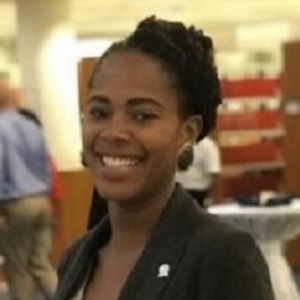
by Morgan Sills, Howard University School of Law ’21
On January 15 th the U.S. Copyright Office hosted a panel entitled “Copyright and Social Justice,” as part of its Copyright Matters series. The event explored the intersection of social justice and copyright protection, with a special focus on historically disadvantaged communities that are often unable to access protection for their work.
Opening remarks were given by Hakeem Jeffries, who is a U.S. Representative from New York and a member of the House Subcommittee on Courts, Intellectual Property, and the Internet. Representative Jeffries began the event by stressing the Constitution as the foundation of power for copyright protection and recognizing the emphasis placed on intellectual property rights by the Founding Fathers.
As the first panelist to speak, IIPSJ Founder, Professor Lateef Mtima, set the framework of the discussion by highlighting the social injustice surrounding communities that are unable to use the copyright system to protect their creations. As a result, the copyright system and structure of intellectual property rights as a whole both suffer from the exclusion of their talents and cultural contributions. IIPSJ’s Executive Director, Kim Tignor, reflected on the experiences of hip-hop groups like De La Soul and their noticeable absence from digital streaming services to illustrate the barriers faced by many artists today. She explained that there is a need to “decode” the copyright law so that artists can fairly profit from their efforts; and pointed out how the legal community often fails to educate creators on their ability to use digital space for the fair distribution of their work.
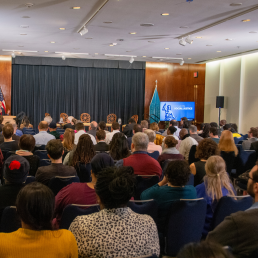
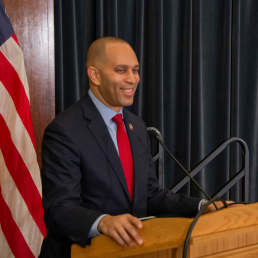
Hollis Wong Wear, a Grammy-nominated singer, songwriter, and producer, presented her perspective as an artist and advocate for other creatives. She voiced the idea that copyright lawyers can learn a great deal from artists and how legal regulations shape their reality, especially with expanded access through social media. She also used the example of Prince and his highly publicized fight against Warner Bros. to gain ownership of his master sound recordings, noting the social and economic impacts of such victories.
Law Professor and Co-Director of the IP Program at George Washington Law, Professor Robert Brauneis reported his findings after conducting research on thirty-five years of registration history. Consistent with the
reports of the previous panelists, Professor Brauneis reported that certain minority groups owned a significantly low number of actual copyright registrations compared to the amount of copyright eligible work they produced. He pointed to the CASE Act as a remedy for this situation, in
addition to the power of copyright attorneys and policy makers to serve creators and educate them on the best tools to benefit from their labor.
